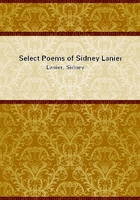
第24章 CHAP. VII.(4)
for where-ever any two men are, who have no standing rule, and common judge to appeal to on earth, for the determination of controversies of right betwixt them, there they are still in the state of* nature, and under all the inconveniencies of it, with only this woful difference to the subject, or rather slave of an absolute prince: that whereas, in the ordinary state of nature, he has a liberty to judge of his right, and according to the best of his power, to maintain it; now, whenever his property is invaded by the will and order of his monarch, he has not only no appeal, as those in society ought to have, but as if he were degraded from the common state of rational creatures, is denied a liberty to judge of, or to defend his right; and so is exposed to all the misery and inconveniencies, that a man can fear from one, who being in the unrestrained state of nature, is yet corrupted with flattery, and armed with power.
(*To take away all such mutual grievances, injuries and wrongs, i.e. such as attend men in the state of nature, there was no way but only by growing into composition and agreement amongst themselves, by ordaining some kind of govemment public, and by yielding themselves subject thereunto, that unto whom they granted authority to rule and govem, by them the peace, tranquillity and happy estate of the rest might be procured. Men always knew that where force and injury was offered, they might be defenders of themselves; they knew that however men may seek their own commodity, yet if this were done with injury unto others, it was not to be suffered, but by all men, and all good means to be withstood. Finally, they knew that no man might in reason take upon him to determine his own right, and according to his own determination proceed in maintenance thereof, in as much as every man is towards himself, and them whom he greatly affects, partial; and therefore that strifes and troubles would be endless, except they gave their common consent, all to be ordered by some, whom they should agree upon, without which consent there would be no reason that one man should take upon him to be lord or judge over another, Hooker's Eccl. Pol. l. i.
sect. 10.)
Sec. 92. For he that thinks absolute power purifies men's blood, and corrects the baseness of human nature, need read but the history of this, or any other age, to be convinced of the contrary. He that would have been insolent and injurious in the woods of America, would not probably be much better in a throne;where perhaps learning and religion shall be found out to justify all that he shall do to his subjects, and the sword presently silence all those that dare question it: for what the protection of absolute monarchy is, what kind of fathers of their countries it makes princes to be and to what a degree of happiness and security it carries civil society, where this sort of government is grown to perfection, he that will look into the late relation of Ceylon, may easily see.